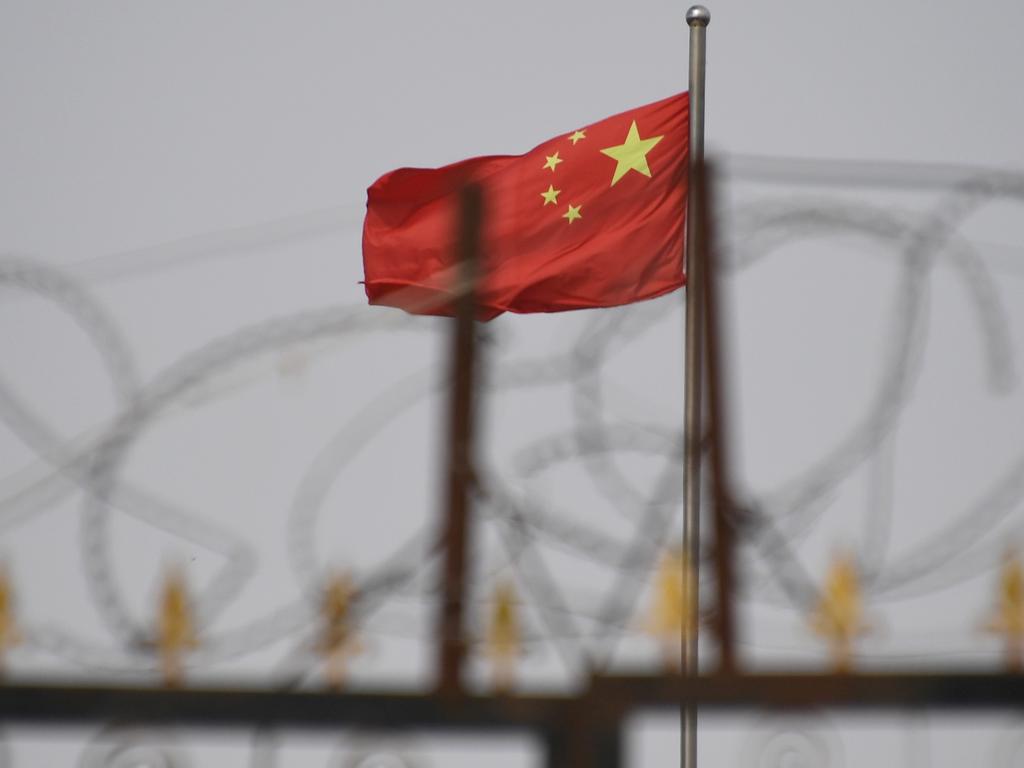How the West can escape China’s clutches

You know that. You know the CCP is treating China’s Uighur minority with hideous inhumanity, brutalising Hong Kong and breaking its word to Britain, and trying to seize control of the South China Sea; that at home China is becoming a surveillance state of Orwellian proportions, and abroad stealing our intellectual property and tilting the playing field against our exports; that the CCP tries to infiltrate our universities and intimidates great Western commercial institutions such as HSBC into ashamed compliance.
You know, in short, that the CCP’s vision is of a rising China and a free world dwindling by degrees into impotent dependency. Thanks to so many passionately warning voices like those of former Hong Kong governor Chris Patten, experts in the field like the Royal United Services Institute’s Charles Parton, or brave television documentary-makers like Robin Barnwell, these truths should not be in doubt.

But what are we to do? The risk is not of ignorance but despair: a terrible danger we slip from “too soon” into “too late” without an intervening moment of deliberation. That moment should be now, before it is too late.
And here this column changes key, because I have a new note to strike. If only we get our act together, the Chinese Communist Party is eminently beatable. It is not omnipotent and not very clever. Its system and ideology, though at present enriching much of China’s diligent, capable, resourceful population, is more fragile than may appear, and may prove dependent on domestic growth. Abroad, Beijing’s ambition to project power is tin-eared and clumsy.
All we in the West need do is band together and decouple. The four watchwords as China took over Hong Kong — a promise Beijing has now broken — were “one country, two systems”. As we respond to Xi Jinping’s new 21st-century imperialism-with-Chinese-characteristics, the watchwords should be these: “one planet, two systems”.
But as we consider what we can do, we must be honest with ourselves about what we can’t. I part company with Patten and others in only one respect. I doubt we can actually change China’s behaviour much at home or abroad by carrot or stick. With a dash of cynicism, I’m all for Western protests about the Uighurs’ enslavement, the crushing of Tibet or the snuffing out of democracy in Hong Kong; and all for targeted sanctions and tit-for-tat visa bans — but mainly for the impact of the message this sends worldwide about repression and cruelty. Show Beijing in its true colours but don’t expect to change those colours. Be frank: we probably can’t help the Uighurs, but we can shout our lungs out about the kind of governing party that commits these atrocities. Muslims worldwide, take note. There’s plenty we can say, short of action.

But here are some of the things we can do: on our own account or with allies and multilateral bodies. Rip Beijing’s roots up from critical engagement with any of our IT systems, as we’re now doing with Huawei. Develop sensitive noses for any commercial or financial engagement that risks our vulnerability to CCP arm-twisting: the building of a nuclear power station in Britain is surely a case in point. Expose academics who play useful idiots to a potentially hostile power. Scrutinise China-sourced largesse towards university projects. Consider, along with allies, inhibiting the growth of China’s exports while it inhibits foreign penetration of its own markets. And resist Beijing’s playing-off of one Western country against another.
The West should consider enlarging undertakings to underwrite Taiwan’s territorial integrity. This can only be done in concert, as should our circling of the ox wagons around allies who stand up to Beijing, like Australia. We should watch with interest the growth of domestic unease in developing countries, as their corrupt leaders saddle their citizens with stupid debts to a country ransacking their natural resources. Beijing should remember what happened to British ownership of the Suez canal. Are CCP gunboats ready for the next Nasser?
But on those many issues where we share China’s interests, like countering climate change, we must be ready to co-operate. Environmental pollution is a bigger problem for China than for much of the world.

Through all this, however, we must remember that communism is an ideology with feet of clay. It is far too early to conclude (as is now fashionable) that the CCP has discovered a brilliant new alloy of capitalist economics with political repression. After 10 minutes of rapid economic growth in China, have we so lightly lost our faith in the marriage of liberal democracy with a free-enterprise economy?
I’m old enough to remember how, in Cold War days, American and British democrats seemed able simultaneously to believe that Soviet communism was a wasteful, plodding, bone-headed way of running a country’s economy and that the commies were storming the world, winning the battle of ideas and might shortly bury us. Containment and disengagement while we waited for socialism to throttle itself in its own contradictions proved the answer. The Russian economy may never have had the potential to support a world power and China’s does: but has it a consent to governance that could outlast continuous, rapid growth?

In many ways Xi Jinping’s government is having a torrid time. He has trashed his country’s global image. The COVID-19 cover-up spoiled admiration for China’s success in stopping the pandemic. The Uighurs’ plight is proving a public relations catastrophe for Beijing. Brutal repression in Hong Kong has torpedoed what was probably Beijing’s best hope of bringing Taiwan back into the mainland’s fold. A decade ago it was possible for well-intentioned Westerners to feel hopeful that China and the free world would draw closer together and ideologies converge. Now Beijing has lost most foreign advocates of engagement; those that remain being reduced to the mournful (or in the case of a few big corporations, sheepish) reminder that “China is not going away”.
Theirs is really a counsel of despair. I have set out grounds for confidence. But confidence depends on the rediscovery of an idea that has been languishing since my Cold War youth: the concept of “the free world”. It must be reshaped for a new, young age. And an old man, Joe Biden, begins to look capable of reshaping it. We British, modest but not insignificant players in all this, must swallow our pride and get behind him.
The Times
More Coverage








Is any sane reader under any illusion about the People’s Republic of China? Assuming not, I shall not labour the point that the Chinese Communist Party is the greatest threat the free world faces in the century ahead.